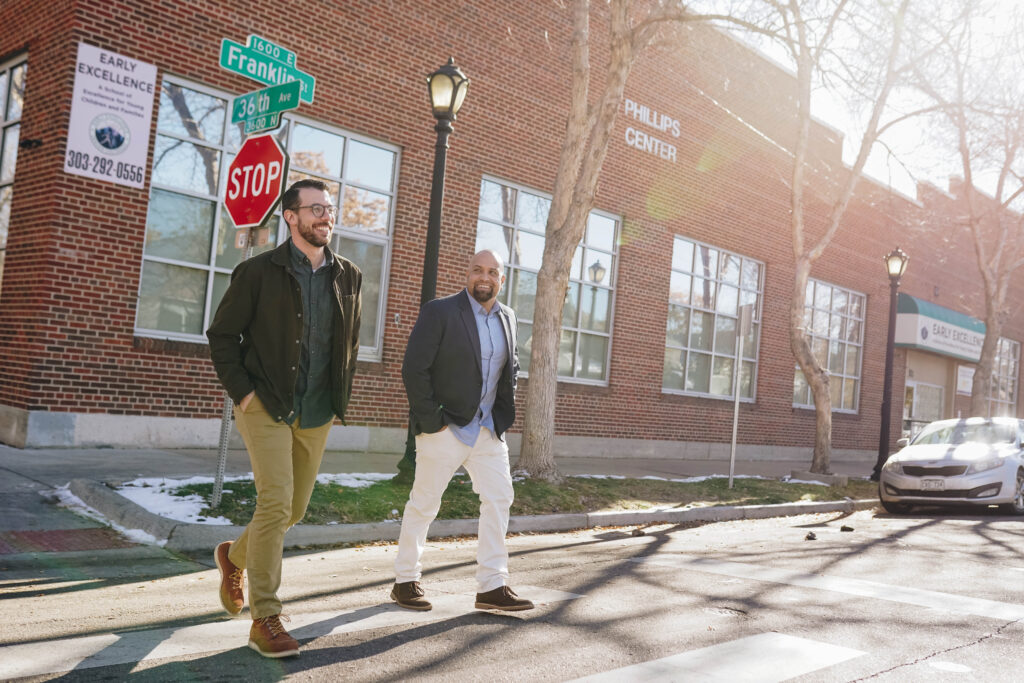After hurting his back, father and husband Ubaldo Chavez became addicted to opioids. He got to a point where he was getting opioids from street vendors.
“The drugs I was getting from the doctor weren’t enough,” said Chavez. After a fight with a drug dealer, he was sentenced to 25 years in jail. “It was catastrophic,” he said. “I made a decision that I was going to change my life completely and live as righteously as possible.”
He ended up being released early because of his good behavior. When out on parole, he went to an orientation where he found the Center for Employment Opportunities (CEO), a transitional jobs program for people coming home from incarceration. Chavez participated and completed the transitional job placement and emerging leaders program through CEO.
After completing the programs, he joined CEO’s staff as the business account manager and job developer. “I feel like I’m on a trajectory where I can help other people who were in my position,” said Chavez. “People are coming out and finding immediate employment, gaining that stability, and they’re not going to go back.”
CEO works to reduce recidivism and increase employment. CEO provides people returning from prison immediate paid employment, skills training, and ongoing career support.
To offer work experience, CEO operates transitional work crews that provide supplemental indoor/outdoor maintenance and neighborhood beautification services to more than 40 customers across the U.S.
People are typically referred to CEO through their parole officer or a nonprofit in the community. Once they’re in touch with CEO, they go through a two-day orientation and the very next day they’re eligible to work with one of their transitional work crews.
“I had money in my pocket literally within a couple of weeks of reintegrating. It was a game changer,” said Chavez.
Participants work on transitional work crews four days a week and the fifth day is dedicated to vocational training with a job coach and job developer. Once participants find full-time positions, CEO continues working with them for a year to ensure they have the support they need to grow in their careers.
“Coming into the office once a week allowed me to get an email set up, start working on my resume, and then actually start applying for jobs,” said Chavez. “It had such a positive impact on my life.”
 At CEO, participants receive wraparound services including mock interviews, resume workshops, and even clothes and shoes to wear on interview days.
At CEO, participants receive wraparound services including mock interviews, resume workshops, and even clothes and shoes to wear on interview days.
“These folks are coming back and living in different communities. They are strong contributors to society, that makes the community stronger,” said Chavez.
“They’re building up those skills, proving that they’re a great worker so that we can be a great reference for them,” explained Smesrud. CEO’s job developers are working in the background to pair the participant with an employer once they’re done.
The financial security and stability provided by grants from The Denver Foundation and its donors allow CEO to help their participants navigate resources in the community beyond just the job.
The Denver Foundation believes that economic opportunity is achievable when communities have the tools and resources to build wealth, increase assets, and create local and just economies. That is why The Denver Foundation supports CEO’s commitment to supported reintegration.
This nonprofit has been a grantee of the foundation and its donors since 2018, and a Community Grants Program grantee for the past two years.
“We’re looking into more and more skills and credentials that will move people toward that economic stability,” said Smesrud. “That’s how we really scale up our impact.”
CEO reports seeing lower rates of recidivism, higher retention at jobs, and more mobility within jobs for their participants. “As we continue to serve more and more folks, those individuals who were a part of the CEO program are able to be spread throughout the Denver Metro area to make our community richer and better,” said Smesrud.
Photos courtesy: Armando Geneyro
